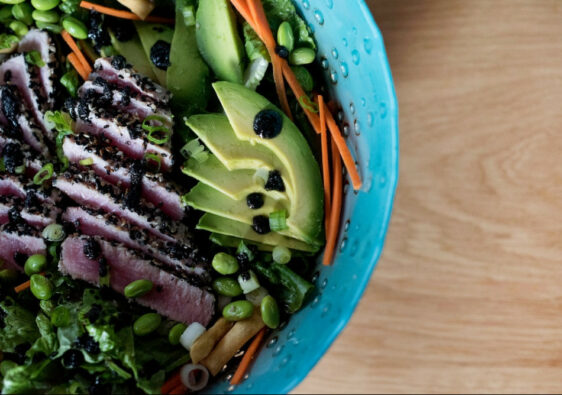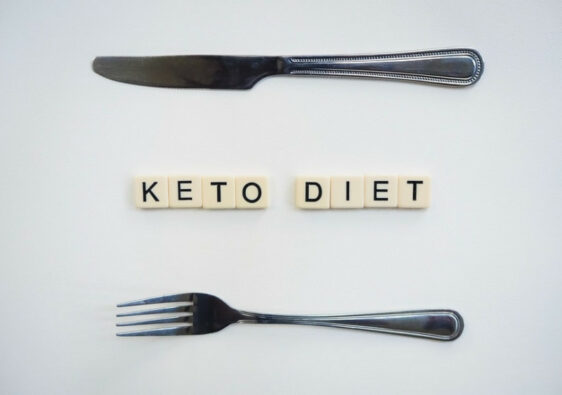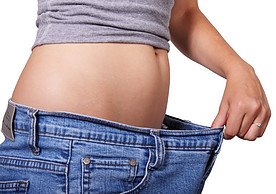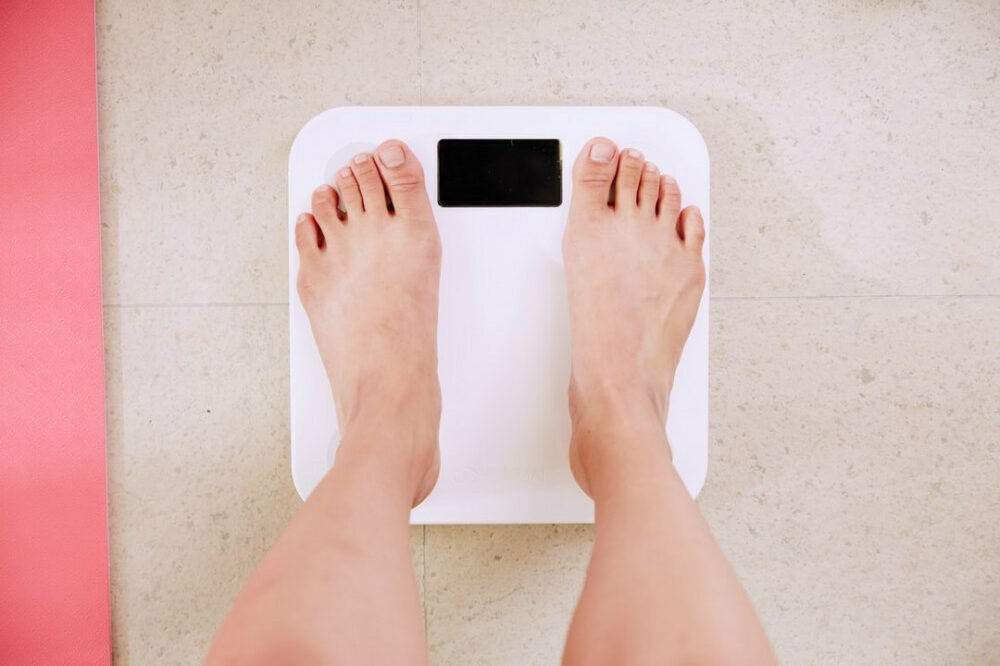In today’s blog post, we will look at the question of whether or not you could or should include intermittent fasting in the keto diet.

The Keto diet is not everything…
It is important for you to know that on your ketogenic diet journey, that your success is not only determined by eating enough fat and protein and limiting carbohydrates.
It’s also about when you eat, how often you eat, and how much you eat. This all has significant impact on your health and how your body functions.
Fasting is not required to lose weight on the keto diet. If it doesn’t work for you, don’t do it. Unrealistically limiting yourself is pointless–it’s not worth it if it doesn’t makes you unhappy.
We need to first understand 2 basic concepts: feeding and fasting.
Your body is in a feeding state when you are eating food and between meals, when you are not eating, your body is in a fasting state.
Intermittent Fasting Methods
Here are important points when it comes to intermittent fasting:
- Skipped meals: This is the meal that is skipped to initiate fasting. Normally, people choose breakfast while others prefer to skip lunch.
- Food Period: Concentrates your total macronutrient intake on 4 to 7 hours a day. The rest of the time you will be fasting.
- 24-48 hours cleansing fasting: Here you start an extended fasting period and do not eat for 1-2 days.
It is not recommended that you try the 1-2 day option immediately, but rather first try to limit yourself to certain feeding periods. For example, you can limit yourself from 5pm to 11pm for feeding.
It’s up to you whether you decide to do it every day, twice a week, or only once a week – do what you like best and listen to your body.
How does intermittent fasting work?
The purpose of interval fasting is to limit the amount of food we can consume to 1 or 2 meals a day. Of course, our body can only consume a certain amount of food at once, so we limit our calorie intake.
Your body will get used to fasting and you will not feel as hungry as before. In this way, you can correctly calculate and maintain the nutritional value of your intake.
In this state of fasting, our body can break down additional fat that is stored for the energy we need. When we are in ketosis, our body is already imitating a state of fasting because we have little to no glucose in our bloodstream. This is why we use the fats in our body as energy.
Interval fasting uses the same reasoning – instead of using the fats we eat to produce energy, we use our stored fat. You have to keep in mind that you will have to eat more fat later to get the daily macronutrients (very important!). If you eat too much fat here, you will store the excess.
Fasting is not only good for weight loss. There are other benefits that we will discuss as well.
Benefits of Intermittent Fasting
There are a number of advantages that result from interval fasting. Some of them include blood lipid levels, longevity and testosterone levels. Below are a number of reasons why interval fasting, along with a ketogenic diet, is ideal:
- Mental Clarity – Once your body is ketogen-adapted, the brain can work effectively with ketones derived from fat loss in the liver. Fat is considered one of the most energy-efficient fuels for your body, and the brain consumes a lot of energy.
- Even if your body doesn’t get glycogen, it can rely on the abundance of fat from the foods you eat and store. This means that the brain can work at full power all the time. When you start getting used to fasting, you should start fasting naturally. This means only eating when you are hungry. Do not plan to fast – let it happen naturally.
- Fitness – Fasting during exercise can lead to a number of benefits in the long run, including:
- Higher Metabolic Adjustments – Studies show that your training performance increases in the long run.
- Improved muscle synthesis – Studies show that muscle growth is increased when you train in an empty state and use the right nutrient intake.
- Improved response to meals after training – Studies have shown that rapid absorption of nutrients after strong training can lead to better results.
How Long Can We Last Without Food
Once you start fasting, you may feel hungry, and even your mind may react to the threat of hunger.
Mahatma Gandhi survived 21 days without food while consuming only small sips of water. In times when humans had no food or water at all, they could survive 10 to 14 days.
3-Day Fasting Plan
If you want to increase ketone levels, get into ketosis quicker, or boost your ketogenic metabolism, try this 3-day fasting protocol:
Thursday evening
– Eat a ketogenic dinner and make it the last meal of the day. Go to bed as usual.
Friday morning
– Go for a walk within 30 minutes of waking up. Drinks coffee or tea as needed. However, it is best to limit your intake of caffeine, as this will help you excrete more minerals and fluids than usual.
– Take at least 1 liter of water with some unrefined salt and drink it during the walk to avoid cramps.
– Walk for 3 to 4 hours and drink water as needed.
– Use the time productively, such as making phone calls or similar.
– The idea behind this walk is that you use up the glycogen store and force your body to go faster into deep ketosis. The faster you get into ketosis, the less time you will feel “drained”.
– If you prefer to shorten the time frame, you can also do an intense 45-60 minute workout.
Friday after the walk
– Take MCT oil or coconut oil 2-3 times throughout the day. This will give you energy until your ketone levels increase naturally.
Saturday morning
– Test the blood ketones after waking up. Your ketones should be at least 0.7 mmol.
– If you are at 0.7 mmol, simply continue fasting.
– If you have less than 0.7 mmol, consider another long walk and test again.
Saturday and Sunday during the day
– Add more MCT oil or coconut oil if you need a boost. They can be left out if you are already in a deep ketosis.
– Add some salts to the water you drink. This can be either table salt or a special salt with electrolyte replacement (possibly in tablet form).
Sunday evening
– Stop fasting with your favorite ketogenic meal!
Conclusion
Interval fasting and ketogenic nutrition complement each other perfectly to efficiently lose weight, initiate ketogenic metabolism, and improve overall health.
Remember that interval fasting is not something for everyone. If you notice that you are having trouble fasting, simply stop it and continue with your ketogenic diet.
Have you tried fasting before? What was your experience like?
Thanks for reading,
Anna





I’ve heard that there are many benefits of fasting or intermittent fasting but never tried it yet. I would like to try it and I found your advice how to proceed very helpful, I would never think that walking could support the process so much!
Thank you for your comprehensive description and explanation, I really enjoyed reading this article.
I haven’t been on a keto diet, but I have tried intermittent fasting. Well, to be honest it wasn’t really fasting but limiting calories. You’ve probably heard of the 5-2 diet. That’s what I tried. On this diet, you eat normally 5 days a week. On 2 days a week, you eat only 500 calories per day. It is often called one of the intermittent fasting methods.
I did lose weight when I was on 5-2 diet. Even this diet was hard to me, though. I couldn’t continue the diet, because I got migraines on the days when I reduced the daily calories to 500.
There’s another type of “fasting” I tried once as well. This was a sort of detox fast. The idea of it was to detoxify the body. You were supposed to eat only vegetables and fruits for 2 weeks. Small amount of goat cheese (!) was allowed, but no dairy, no meat, no fish, co caffeine, so sugar, no grains. I almost lasted for 2 weeks, but unfortunately, I had cookies in the kitchen cupboard. So, I ended up eating those…
I didn’t lose any weight on the “detox fast”, but maybe it detoxified my body, I don’t know.
Fasting might not be for me, especially because I have migraines. But I’m glad I gave it a try so I know from my own experience.
Thank you for a most interesting article on intermittent fasting. I have tested this before on myself with mixed results by fasting and only eating after 12 the next day.
This article takes fasting to a new level, and I was interested to read that you should go for long walks when fasting, as I would have thought one would have no energy to do this. I will certainly give this a try and see if I can last for a few days, although I am going to have to do a lot of mental preparing.
Hello There from my own understanding a ketogenic diet is a high-fat, adequate-protein, low-carbohydrate diet that in medicine is used primarily to treat difficult-to-control (refractory) epilepsy in children. The diet forces the body to burn fats rather than carbohydrates. Normally, the carbohydrates contained in food are converted into glucose, which is then transported around the body and is particularly important in fueling brain function.